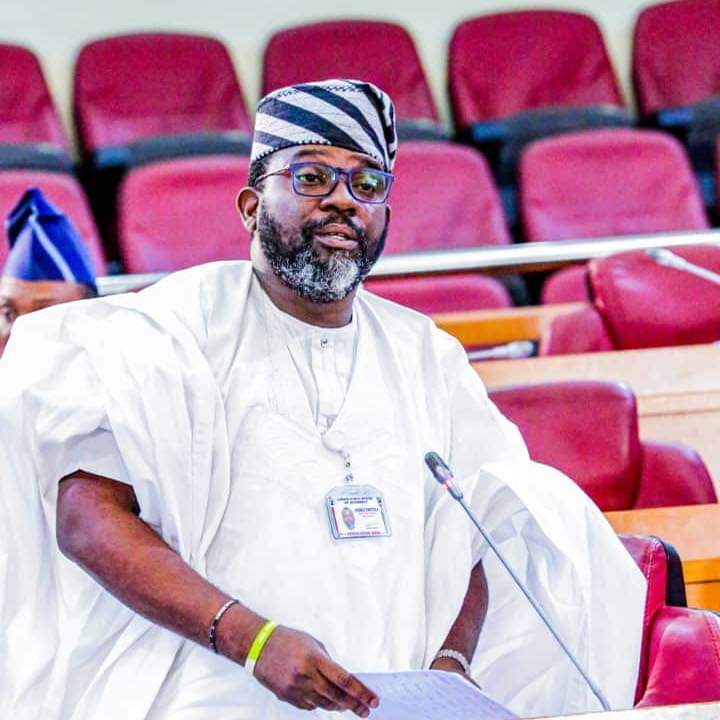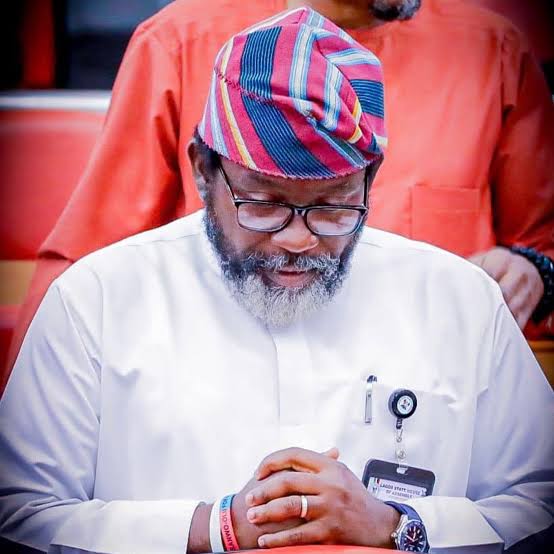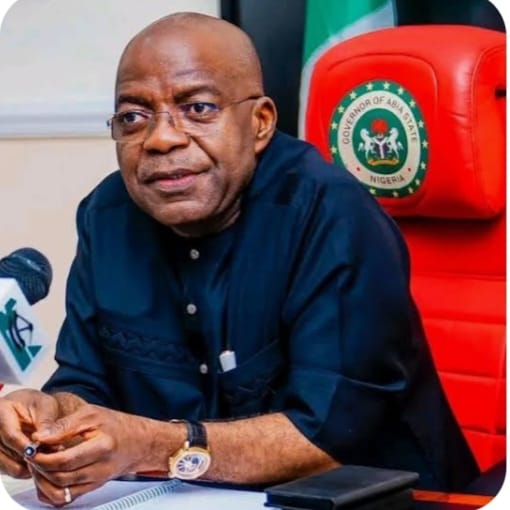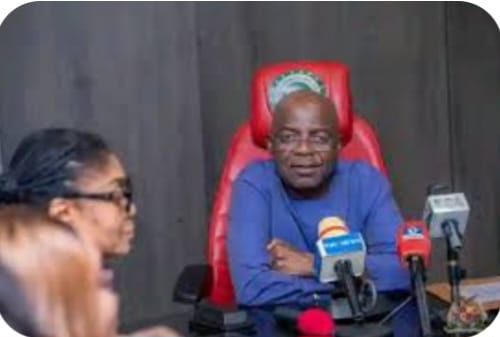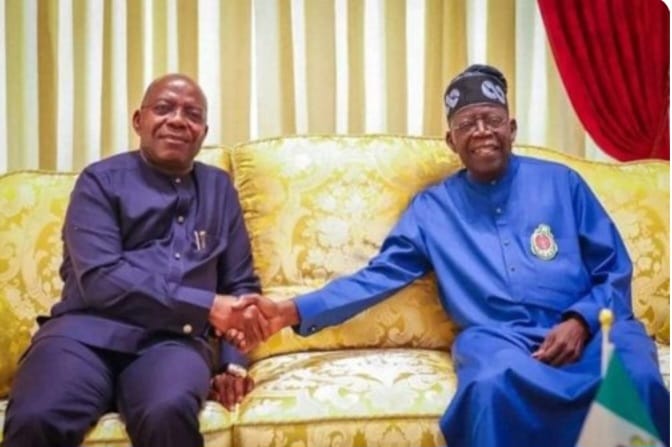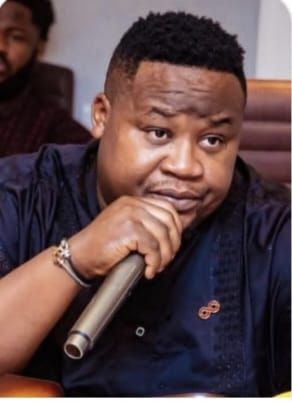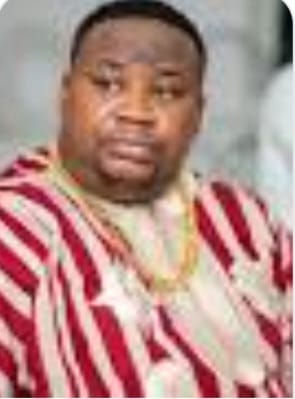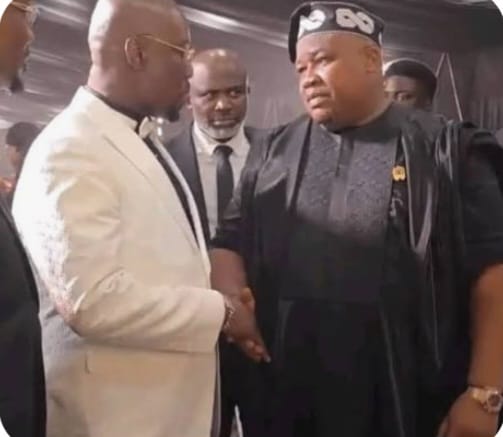Politics
Appreciating Betara’s Rare Leadership Disposition* By Ali Adamu
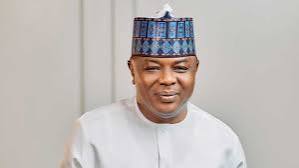
*Appreciating Betara’s Rare Leadership Disposition*
By Ali Adamu
The legislative arm of government is entrenched with the powers to make laws for good governance. Effective representation, however, goes beyond lawmaking. It demands a deep understanding of the people’s needs and a willingness to address them. Rt. Hon. Muktar Aliyu Betara, OON, exemplifies this commitment, leveraging his parliamentary expertise to drive transformative change.
To Rt. Hon. Betara, parliamentary practices are about service to humanity. He believes that laws are made for people and therefore strives to ensure his diligent efforts cover tangible, measurable interventions that better the well-being of his constituents and society. Born on November 22, 1966, in Zarawuyaku Ward of Biu town, Biu Local Government Council, Rt. Hon. Aliyu is a five-time lawmaker and accountant. He began his education at Biu Central Primary School in 1973, completing his First School Leaving Certificate in 1978. He then attended Biu Central Junior Day Secondary School and later Government Technical Secondary School, Benisheik. His exceptional leadership qualities and obedient disposition earned him respect and admiration, leading to his appointment as head prefect.
After obtaining his West African School Certificate in 1983, Rt. Hon. Muktar proceeded to Ramat Polytechnic, Maiduguri, where he earned an Ordinary National Diploma in Business Administration in 1986. He later obtained a Higher National Diploma in Accountancy and Business Administration in 1992. As a pragmatic and foresighted statesman, Rt. Hon. Betara began his career in public service as an accountant with the Directorate for Food, Roads and Rural Infrastructure (DFFRI) from 1986 to 1990, and later with Nigerian Telecommunications Limited (NITEL) from 1993 until his voluntary retirement in 2006.
Initially, Rt. Hon. Betara didn’t plan to venture into politics. Instead, he considered starting a business with his savings. However, due to pressure and clamour from his people, he decided to represent them and become their voice. This marked the beginning of his political journey, which led him to become a member of the House of Representatives in 2007.
In 2007, he succumbed to their pressure and joined the All Nigerian Peoples Party (ANPP) and was elected to represent Biu/Bayo/Shani/and Kwaya Kursar Federal Constituency from where he has consistently and continuously represented them through the 6th, 7th, 8th, 9th and now 10th Assembly, with the current and immediate past in the All Progressives Congress (APC).
A core nationalist, Rt. Hon. Muktar Aliyu Betara, OON, consistent presentation and contributions both nationally and transnationally include interventions in human and natural disasters. For instance, he was among the first to copiously donate to the victims of the Borno flood disaster.
This benevolence stands him out not only as a bridge builder and crisis interventionist but also as a humane philanthropist who can sacrificially use his personal resources to not only meet the yearnings of his constituents but also be in synch and solidarity with those in dire need and affliction.
Aside this resourcefulness and the saying goes that, ‘charity begins at home’, he has among other things embarked upon the following hallmark projects; supply of medical equipments to Sir Mohammadu Sanusi General Hospital, Tokarawa and Yankaba Primary Health, provision of empowerment materials to youths and women of his constituency, provisions of fertilizer to farmers, provisions of grants to youths and women farmers, installation of solar light in communities in Biu.
A strong and formidable force in national politics, his successes, usefulness, and stalling achievements far outstretch his immediate constituency but have affected national life and policies.
Rt. Hon. Betara is instrumental in the effective implementation of a revised budget cycle from June to June to a more effective and efficient successful current budgeting system of January to January, the compliance of which has seen a zero failure rate in appropriation and enactment.
His involvement in national security based on his critical decision skills is next to none as it has seen to several mending of fences and brokered people amongst warring communities and parties. He was singularly responsible for the upscaling of defence equipment and empowerment and sustenance of military operations against the rising insurgency of book haram in northern Nigeria.
Amongst his other notable achievements are; the construction of over twenty health centres with the provision of ten ambulances, the construction of a mini stadium in Biu to facilitate Sporting and Sports related activities and peaceful coexistence, and the installation of five hundred solar-powered street lights, amongst others.
Indeed, he gainfully used his positions as Chairman Subcommittee on NDIC, Banking and Currency, Member House Committee on Interior, and Chairman House Subcommittee on Customs, Immigration and Prisons.
In the seventh Assembly (2012 -2015), he was the Chairman, House Committee on Army and 2015 – 2019 he was Chairman House Committee on Defence. In his last assignment as the Chairman House Committee on Appropriation, Rt. Hon. Betara certainly has impacted Nigeria’s democracy and proved unequal and dexterous qualities.
Rt. Hon. Muktar Aliyu Betara’s leadership as Chairman of the House Committee on FCT has been instrumental in enhancing infrastructure in Abuja. Through effective legislation, he has helped improve the budgetary allocation of capital, leading to significant developments. His commitment to the welfare and security of residents and natives is evident in his constant engagement with the minister, ensuring their needs are addressed.
As Chairman, Betara has played a crucial role in approving supplementary budgets for the Federal Capital Territory Administration (FCTA), demonstrating his dedication to the city’s growth. Recently, he oversaw the adoption of an N288 billion supplementary budget for the FCTA, showcasing his ability to drive progress.
Little wonder then that in 2020, he was awarded the Democracy Hero’s Award for Best Performing Rep Member of the Year, and also the Award of Excellence by the North Eastern Zone of the Nigerian Union of Journalists in 2013. His bills on Defense Research and Development Bureau 2018, and the Bill for an Act to Repeal the Produce Enforcement of Export Standard remain one model Bills in the annals of modern-day Legislation, coupled with his wealth and responsibility of knowledge and experience, remains one of the reasons he commands so much respect amongst his colleagues.
In conclusion, Rt. Hon. Muktar Aliyu Betara, OON, embodies the essence of selfless leadership, compassion, and dedication to the betterment of humanity. Through his illustrious career, he has etched an indelible mark on Nigeria’s legislative landscape, leaving a legacy of transformative change that will endure for generations. As a champion of the people, a defender of the vulnerable, and a steadfast advocate for progress, Rt. Hon. Betara’s name has become synonymous with excellence, integrity, and unwavering commitment to the noble ideals of public service. His story serves as a beacon of hope, inspiring future leaders to emulate his exemplary qualities and pursue a life of purpose, driven by the pursuit of the greater good.
Adamu, a public affairs analyst, wrote this piece from Maiduguri.
Politics
Why Ifako-Ijaiye’s Voice Is Louder At The Lagos Assembly: The Jah Factor
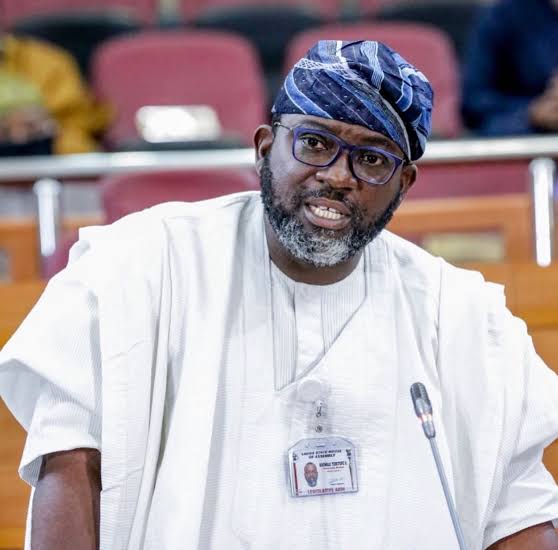
Why Ifako-Ijaiye’s Voice Is Louder At The Lagos Assembly: The Jah Factor
By Ibukun Simon
In legislative politics, not all representatives are created equal. Some merely occupy seats; others shape conversations, influence outcomes, and leave visible footprints in the lives of their people. Since 2019, Ifako-Ijaiye Constituency I has belonged firmly to the latter category, thanks to the emergence of Hon. Adewale Temitope Adedeji, fondly known as JAH, as its representative in the Lagos State House of Assembly.
As a journalist who has covered proceedings of the Lagos Assembly consistently since 2015, I have witnessed first-hand how representation can either fade into the normal routine or rise into relevance. The entry of Hon. Adedeji into the Assembly marked a clear turning point—not only for Ifako-Ijaiye, but for the quality of debate, advocacy, and people-focused legislation within the House.
On the floor of the Assembly, Hon. Adedeji stands out as one of the lawmakers journalists naturally gravitate towards. His interventions during plenary sessions are deliberate, articulate, and deeply rooted in public interest and knowledge. In the 40-member House, he is widely regarded as one of the top five lawmakers whose contributions command attention, not because of theatrics, but due to his clarity of thought, persuasive delivery, and uncommon mastery of issues. When JAH speaks, the chamber listens—and the press takes notes.
This strength of presence is crucial in a legislative environment where influence matters. In parliamentary practice, experience translates to authority. The Lagos State House of Assembly, like many legislatures, places significant weight on ranking members—lawmakers whose sustained service enhances their ability to push motions, influence committee outcomes, and attract development to their constituencies. Returning Hon. Adedeji to the House in 2027 would therefore mean strengthening Ifako-Ijaiye’s bargaining power and ensuring its concerns are not just heard, but prioritized.
Beyond the chambers, the impact of Hon. Adedeji’s representation is visible across the constituency. In terms of infrastructural development, several road construction and rehabilitation projects have been attracted to Ifako-Ijaiye under his watch, improving accessibility, boosting local businesses, and easing daily movement for residents. These are practical dividends of democracy that speak louder than campaign slogans.
Equally significant is his focus on human development and social inclusion. Since assuming office in 2019, Hon. Adedeji has facilitated job opportunities, empowered the less privileged, and consistently supported students through the distribution of JAMB and GCE forms, helping to remove financial barriers to education. These interventions reflect the impact of a representative who understands that development must touch both infrastructure and people.
What further distinguishes Hon. Adedeji is his constant engagement with constituents. Through consultations, town-hall interactions, and accessibility, he has maintained a relationship that goes beyond election cycles. This closeness has fostered trust and ensured that governance remains responsive to grassroots realities.
As Lagos continues to grow and legislative responsibilities become more demanding, constituencies like Ifako-Ijaiye cannot afford experimental representation. They require lawmakers who understand the system, command respect within it, and can translate legislative influence into real benefits for the people.
From the Assembly floor to the streets of Ifako-Ijaiye, the record since 2019 is clear: effective representation works—and Hon. Adewale Temitope Adedeji has delivered it.
Ibukun writes from Ifako-Ijaiye.
Politics
Lack of Understanding or Legitimate Concern? Otti’s Defence of Tinubu’s Tax Reform Sparks National Debate
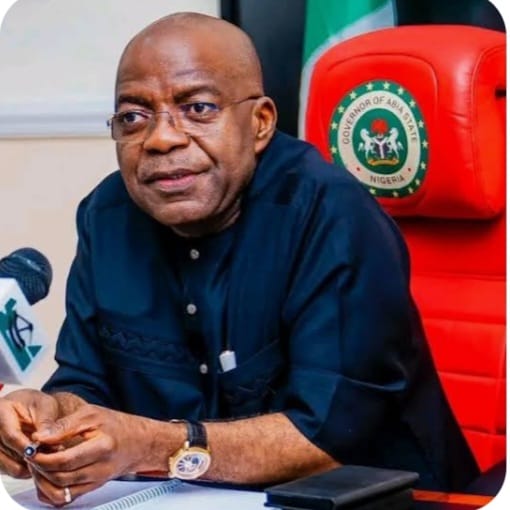
Lack of Understanding or Legitimate Concern? Otti’s Defence of Tinubu’s Tax Reform Sparks National Debate
By George Omagbemi Sylvester | SaharaWeeklyNG
“Abia Governor Alex Otti argues critics misunderstand the overhaul of Nigeria’s tax laws, but the controversy reveals deeper anxieties about governance, transparency and economic strain.”
When Abia State Governor Alex Otti publicly defended President Bola Ahmed Tinubu’s newly enacted tax reform laws on February 13, 2026, he did more than just push back at critics, he threw the spotlight back on a fulcrum issue dividing Nigeria’s political and economic classes. Otti’s assertion that Nigerians attacking the tax policy “lack understanding” crystallises a broader fracture in public discourse over fiscal policy, governance and the future of the Nigerian economy.
The comments from Governor Otti came amid an intensifying national conversation over sweeping tax reforms signed into law in June 2025, designed to modernise Nigeria’s tax architecture and expand revenue mobilisation. These reforms (long in the making and championed by a Presidential Fiscal Policy and Tax Reforms Committee chaired by Prof. Taiwo Oyedele) mark the most far‑reaching overhaul of federal tax laws in decades. They include restructuring the Federal Inland Revenue Service into the National Revenue Service (NRS), establishing a Tax Appeal Tribunal and Ombudsman Office, and unifying revenue collection frameworks to improve transparency and efficiency.
Governor Otti’s praise for the new legislation resonated with elements of his own fiscal thinking. Drawing on economic positions he articulated nearly a decade ago, he argued that key principles now entrenched in the law reflect sound fiscal reasoning and long‑standing proposals to strengthen Nigeria’s economic foundations. “Almost 10 years ago, I wrote about the fiscal side of things,” Otti said. “When I read the new tax reform law, I saw many of those arguments reflected in it. I thank Prof. Oyedele. When people attack him, they don’t understand.”
Yet, while Otti’s intervention was meant to de‑escalate public criticism, it instead exposed how complex and emotionally charged the issue of taxation has become in Nigeria. Critics, both inside and outside government, argue that the reforms have not been adequately explained to citizens and that many fear the measures will aggravate hardship amid already high costs of living. One prominent voice of dissent, fiscal policy analyst Aborisade, warned that without transparency and clear communication on how tax revenues will be collected and returned to the people, “these reforms risk becoming deeply unpopular.” Critics also highlight that any tax increase implemented without demonstrable improvements in public services could fuel resentment and mistrust in governance.
That mistrust is not abstract. For years, Nigeria has struggled with weak tax compliance, low revenue‑to‑GDP ratios compared with other emerging economies, and public scepticism over how government revenues are utilised. Many Nigerians remember episodes where policy changes were not accompanied by visible improvements in infrastructure, healthcare or power delivery, reinforcing the belief among skeptics that new taxes equate to greater burden with little reward.
For supporters like Otti and others in government policy circles, the reforms represent a long‑overdue attempt to widen the tax net and reduce Nigeria’s chronic dependence on volatile oil revenues. Advocates argue that a modernised tax system can enhance domestic revenue mobilisation, reduce fiscal deficits, and create a more resilient economy. They point out that reforms provide exemptions and reliefs for low‑income earners and small businesses and are aimed at building a fairer, more transparent system for all stakeholders.
Still, bridging the gap between these competing narratives is challenging. Opposition voices contend that even well‑designed tax policy may fail if the state lacks the capacity to implement it equitably or if the public’s confidence in leadership remains weak. “Without accountability and clear benefits for their contributions, any tax reform risks becoming deeply unpopular,” Aborisade emphasised, warning that heavy taxation without trust can fracture the social contract.
The debate over Tinubu’s tax reform illustrates a deeper truth about contemporary Nigeria: that economic policy no longer exists in a vacuum but is deeply intertwined with public sentiment, political legitimacy, and social cohesion. As one respected economist put it, “Taxation is not just a fiscal tool, it is a trust‑building exercise between the state and its citizens.” When that trust is fragile, even technically sound reforms can be seen as punitive rather than constructive.
Analysts suggest that meaningful public engagement (including sustained information campaigns, transparent revenue utilisation reporting and constructive dialogue with civil society) is essential to soothe anxieties and build confidence in the new system. Without this, what began as an effort to stabilise public finances could widen political and social divides.
In defending the tax reforms, Governor Otti has framed the challenge as one of comprehension rather than critique. But the controversy unfolding across Nigeria is not simply about misunderstanding; it underscores a profound gap between policy design and public perception. For a reform of this magnitude to succeed, Nigerians must be assured not only of its economic merits, but also of its fairness, transparency and tangible impact on everyday lives.
As the implementation phase continues through 2026 and beyond, the Tinubu administration, state governments and economic stakeholders face the critical task of translating legislative change into broader public trust – a task as difficult as any technical reform the tax laws themselves seek to achieve.
Politics
Cubana Chief Priest Backs Tinubu Ahead of 2027, Signalling Shift in Celebrity Political Alignments
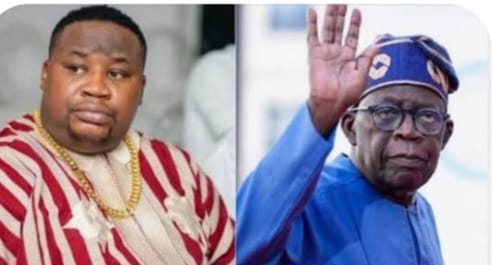
Cubana Chief Priest Backs Tinubu Ahead of 2027, Signalling Shift in Celebrity Political Alignments
By George Omagbemi Sylvester | SaharaWeeklyNG
“Socialite’s public declaration underscores growing intersection of business, entertainment and electoral politics as Nigeria inches toward another high-stakes presidential race.”
A prominent Nigerian socialite and nightlife entrepreneur, Pascal Okechukwu (popularly known as Cubana Chief Priest) has publicly declared his support for President Bola Ahmed Tinubu ahead of the 2027 presidential election, in a move that has stirred debate across Nigeria’s political and social media landscapes.
The declaration emerged in early February 2026 through a series of Instagram posts and public exchanges with critics and followers. In those posts, the celebrity businessman stated unequivocally that he would align himself with Tinubu’s political camp and work against the anticipated presidential bid of former Anambra State governor and Labour Party figure, Peter Obi.
Cubana Chief Priest, who commands a large following across Nigeria’s entertainment and hospitality sectors, framed his decision as both a political and economic calculation. In one exchange, he argued that as an employer and businessman, he preferred collaboration with the incumbent administration rather than opposition politics.
He also publicly declared that he and his family had chosen to “stay with the moving train” of Tinubu’s “Renewed Hope” agenda, signalling clear political alignment with the ruling All Progressives Congress (APC).
The shift is politically significant because the socialite had previously been associated with Peter Obi during the 2023 presidential election cycle. In his own words, he acknowledged that he worked for Obi during that campaign, even while holding an advisory role to an APC-aligned state government.
His new stance therefore represents a notable reversal, particularly within the South-East business community, where Obi enjoyed strong support during the last election.
The controversy surrounding the declaration intensified after an online clash between Cubana Chief Priest and social commentator Isaac Fayose, the brother of former Ekiti State governor Ayodele Fayose. The dispute centred on the socialite’s decision to align with Tinubu’s political movement, with Fayose accusing him of opportunism. In response, Cubana Chief Priest defended his position, arguing that political alignment was a practical choice for a businessman responsible for large-scale employment.
He also linked his support for the APC government to broader political objectives, including the potential release of detained pro-Biafra leader Nnamdi Kanu, stating that such outcomes were more achievable from within the ruling political structure than from opposition ranks.
Beyond social media statements, reports indicate that Cubana Chief Priest has expressed interest in running for a seat in the House of Representatives in 2027 under the APC platform, suggesting that his endorsement of Tinubu is part of a deeper political ambition rather than a mere celebrity opinion.
News reports also describe his announcement of political plans and explicit backing of Tinubu as part of the emerging alignment of business figures with the president’s second-term project.
The development coincides with political moves by his associate, the businessman Obinna Iyiegbu, popularly known as Obi Cubana, who has also been linked to pro-Tinubu political structures ahead of 2027.
This clustering of influential entrepreneurs around the ruling party has prompted renewed discussion about the growing role of celebrity endorsements and business interests in Nigeria’s electoral politics.
Political analysts say such endorsements, while often symbolic, can influence public perception, especially among young voters who are heavily engaged with celebrity culture. As political scientist Larry Diamond once observed, “In transitional democracies, informal power networks (business elites, media figures, and celebrities) can shape political outcomes as much as formal party structures.”
Similarly, Nigerian scholar Professor Jibrin Ibrahim has argued that “the fusion of business capital and political capital is one of the defining features of contemporary Nigerian politics.”
However, critics warn that celebrity political alignments rarely translate into structured policy debates or ideological clarity. Economist Pat Utomi has repeatedly cautioned that “Nigeria’s democracy suffers when politics becomes an extension of celebrity influence rather than a contest of ideas and development strategies.”
For now, Cubana Chief Priest’s declaration remains a personal political endorsement rather than an official party appointment at the national level. Yet its timing (more than a year before the formal campaign cycle for 2027) illustrates how early positioning has already begun among Nigeria’s political and business elites.
Key figures involved:
Pascal Okechukwu (Cubana Chief Priest): Socialite and businessman who declared support for Tinubu.
President Bola Ahmed Tinubu: Incumbent Nigerian president expected to seek re-election in 2027.
Peter Obi: Former Anambra governor and likely opposition contender.
Isaac Fayose: Social commentator who criticised the endorsement.
Obinna Iyiegbu (Obi Cubana): Business associate linked to pro-Tinubu political structures.
As Nigeria moves gradually toward the 2027 electoral cycle, the intersection of celebrity influence, business interests and party politics is likely to intensify, raising fresh questions about the nature of democratic mobilisation in Africa’s most populous nation.
-

 celebrity radar - gossips6 months ago
celebrity radar - gossips6 months agoWhy Babangida’s Hilltop Home Became Nigeria’s Political “Mecca”
-

 society6 months ago
society6 months agoPower is a Loan, Not a Possession: The Sacred Duty of Planting People
-

 news6 months ago
news6 months agoTHE APPOINTMENT OF WASIU AYINDE BY THE FEDERAL GOVERNMENT AS AN AMBASSADOR SOUNDS EMBARRASSING
-

 Business6 months ago
Business6 months agoBatsumi Travel CEO Lisa Sebogodi Wins Prestigious Africa Travel 100 Women Award








